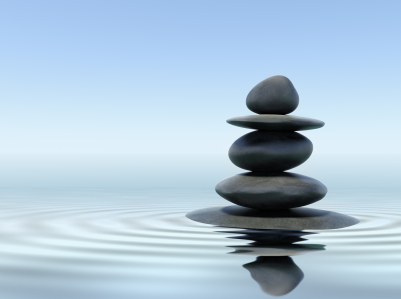5 Principles of a Profound Workday

Let us toss out all we know for a moment.
Toss notions of productivity, time management, efficiency, and the bottom line.
Empty our workdays of all we’ve packed them with, and sit still with an empty room.
What should we put in this room? Do we want to spend our limited space on busy-ness, on making money, on quick transactions and calculated meetings?
What if we put into it only that which matters? What if we left everything else out?
We would be left with a workday that was poetry, profoundly beautiful.
The Profound Workday
In my life I have deliberately cultivated a workday that is flexible, simplified, slow, mindful, creative.
The exact opposite of my previous life: a hurried, anxious, complicated, dull workday.
What I’ve curated is not difficult, but it is the perfect environment for creating work that is profoundly different from my previous accomplishments.
I’ve created this flow using some key principles. You might not be able to implement all of them right away, but it’s my hope that you’ll find the principles useful.
1. Empty: In Silence and Solitude.
When your schedule is full, you have no room for change. When your day is full of noise, you have no space to think.
Empty your day. When you have an empty space, you can fill it with anything. Only with this emptiness can you create something truly different.
Clear your schedule. Find space for silence and solitude. With this space you’ll be free, to hear your thoughts, to see the truth, to create beauty.
2. Slow and Mindful.
Rushing paradoxically leaves us with less time — the speed means we don’t pay attention, and so the day disappears rapidly and leaves us before we notice.
Slow down, and pay attention. You’ll be able to focus on your creative tasks more, and though you’ll do less, you’ll accomplish things that are more profound.
Be mindful of every activity, small or large. Enjoy every motion. When you are done with a task, wash your bowl. Then move to the next.
3. Profoundly Creative.
Don’t use the gift of your day for mindless repetitive tasks. Don’t end the day with nothing to show for your work.
Start each day by creating. Make the space at the beginning of your day to create, before you get lost in emails and online networking and reading.
Create something amazing. Delight your audience. Leave them amazed, wanting to do your marketing for you. Make a difference.
4. Simplified.
The principles for a profound workday might seem impractical to most people, because there just isn’t the time or space to implement them. The only way to create this type of workday is to simplify.
It’s the key to everything else. Subtract. Pare everything down to its essence.
What’s on your desk right now? What are the three items that actually need to be there? Remove everything else.
What’s on your schedule for today? What are the three tasks that would really make a difference in your life? Eliminate everything else that you possibly can.
What do you do every day? How many of those things can be eventually pared down?
How much do you do online? Could you do without it? Simplify, and you’ll be able to find emptiness, solitude, silence, slowness, mindfulness.
5. Flexible and Natural.
This type of workday might start to sound rigid, but in truth when you create space you also allow yourself the flexibility to deal in the moment with any change.
The natural flow of things is change, and if we are rigid we aren’t able to deal with changes. We become frustrated, anxious, angry, flustered.
If instead we have no expectations of what will happen each day, and deal with changes as they come, we let go of that frustration and anxiety.
Be open to whatever happens. Be flexible. Deal with change as it happens, and you’ll find true profoundness doesn’t come from within us, or from external sources, but in the space between the two.
“Perfection is achieved, not when there is nothing more to add, but when there is nothing left to take away.” ~Antoine de Saint-Exupéry
[Ed. Note. Leo Babauta is the owner of ZenHabits.net, a website devoted to providing clear and concise wisdom on how to simplify your life. He’s also the author of, “The Power of Less: The Fine Art of Limiting Yourself to the Essential, in Business and in Life.”]